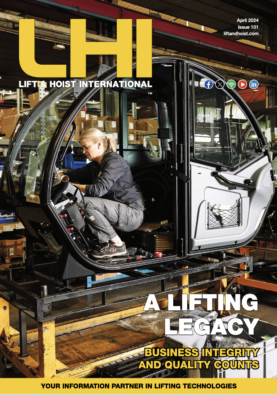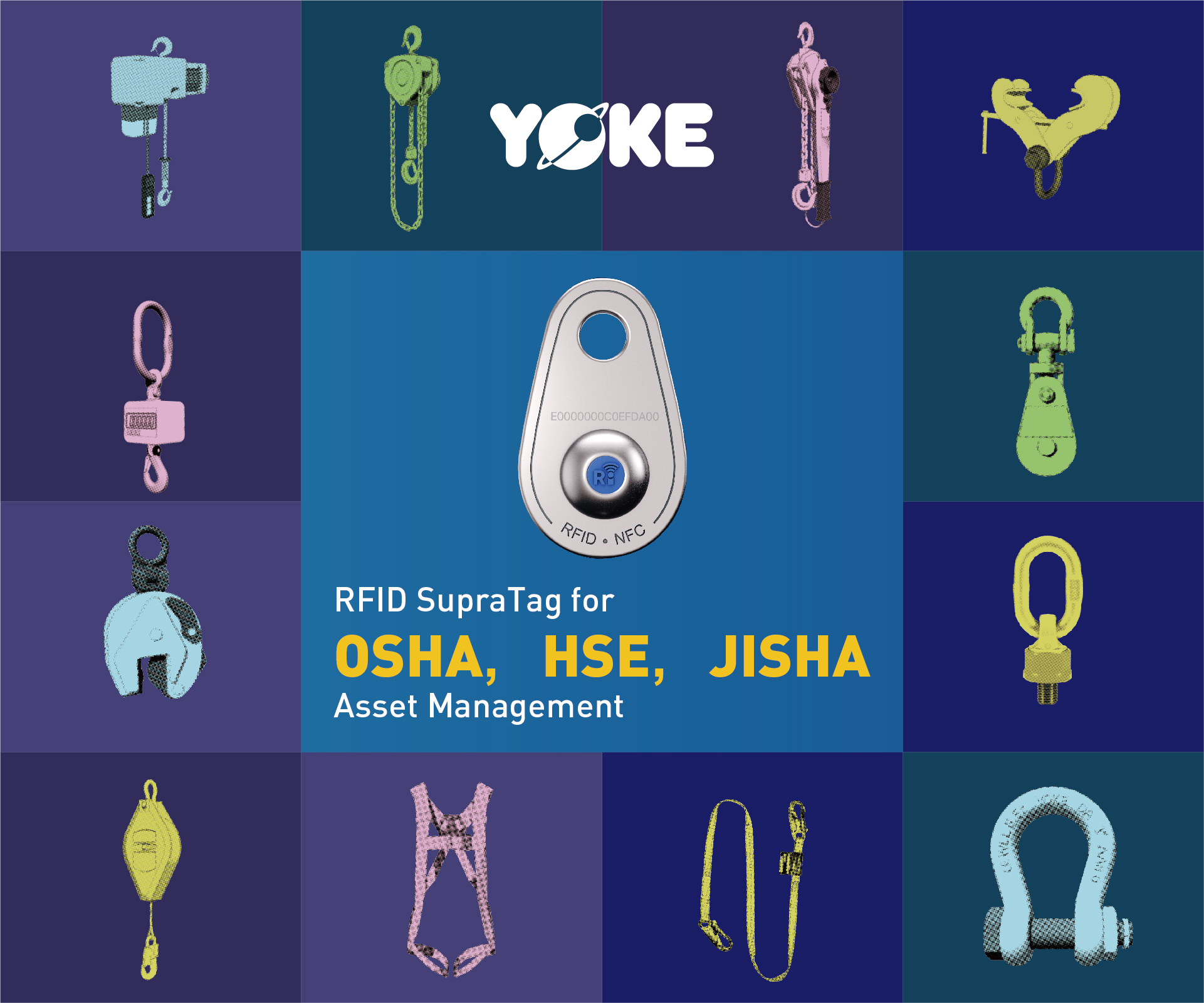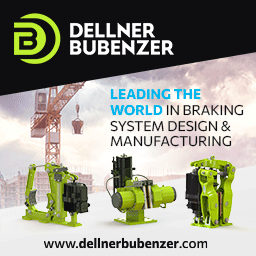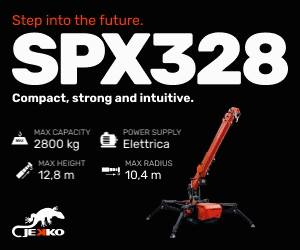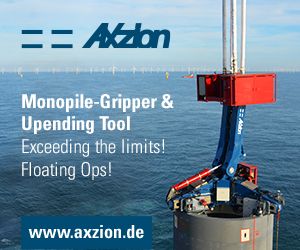)
Greener Intralogistics at LogiMat 23
The growing trend toward the efficient use of resources takes its place alongside automation and digital transformation as an economic imperative in industry and logistics. That’s why sustainability and flexibility in automation and digital transformation are the key trends evident in the products that exhibitors from around the world and across all sectors are presenting to industry professionals at this year’s LogiMAT.
The main focus is on options for greater energy efficiency and the smarter use of resources. “In nearly all sectors of the industry, the companies represented in Stuttgart have responded quickly to today’s challenges and wish to help bring about more energy-efficient intralogistics with the many new and improved products on display,” notes Exhibition Director Michael Ruchty of event organizer EUROEXPO Messe und Kongress-GmbH in Munich. “The international exhibitors at LogiMAT 2023 are demonstrating how investments in the right products and solutions can deliver sustainable business models and a lower consumption of resources. This can be achieved by either modernising and optimising existing systems or by acquiring new technology.”
The logistics and intralogistics industry is in fact often at the vanguard when it comes to solutions to reduce energy consumption and use resources more efficiently. This includes being a “trailblazer of the circular economy” in the words of Dr Johannes Fottner, Full Professor for Logistics Engineering at the Technical University of Munich, in the title of his presentation as part of the accompanying programme at LogiMAT 2023. System developers and equipment manufacturers are building sustainability and carbon neutrality into their own production and logistics even as they develop increasingly efficient and innovative products and system solutions.
The low-energy, low-impact path to sustainability
The intralogistics industry took a holistic view of sustainability and resource efficiency even before the current shortage of skilled workers emerged, energy prices skyrocketed, or new local and international regulations on the designation of industrial and logistics sites took effect. The spectrum of solutions ranges from recycling, retrofitting, circular systems and energy conservation to the optimized utilization of personnel and space. “We need to look at the entire spectrum of sustainability and resource efficiency,” underscores Markus Schlotter, managing director for Central Europe at Exotec GmbH). “This includes short transport routes between production and assembly, smaller production facilities, short implementation times and processes to eliminate downtime, shorter distances to optimise the interaction between humans and machines, ergonomically optimised workstations, and smart energy use. We build all these factors into our new and upgraded product designs.”
“Our exhibitors’ innovative technologies, systems, and processes for sustainability throughout the supply and value chain demonstrate how economic, environmental, and socially responsible activities can be aligned,” remarks exhibition director Ruchty. “The solutions on display highlight once more the industry’s innovation and adaptability.”
The goal of climate neutrality is a tremendous opportunity for small and medium-sized businesses that manufacture industrial machinery and equipment and their innovative technologies, according to industry association VDMA. Which is why manufacturers and developers are focusing on sustainable designs and generating new trends. “A key energy trend is the move away from shuttle-based automatic small-parts storage areas in favor of other solutions that are less energy-intensive,” remarks Schlotter, outlining a few of the adjustments. “Energy efficiency is one of the main factors in the success of our robotics-assisted compact small-parts warehouse and picking solution Skypod. The components of our end-to-end solution and of all our modules, including in our stationary material handling equipment, were designed for sustainability and energy efficiency from the very beginning.” The units directly addressed by Exotec’s material flow software are particularly efficient, Schlotter explains, such as the robots used in the warehouse and picking solution that include an energy recovery system, a sleep mode for when order volumes are low, and lightweight construction for reduced energy consumption. The Exotec solution that won‘Best Product at LogiMAT 2019 is being presented at LogiMAT 2023 with the latest technology and hardware optimisations.
Optimising the use of energy and space
Systems integrator Element Logic (Hall 1, Booth 1H21) takes a similar approach, using material handling technology based on energy-efficient powertrains. “Our roller motors are controlled and set in motion only when they’re needed,” explains Joachim Kieninger, Director of Strategic Business Development at Element Logic Germany GmbH. The system workstations are designed for harmonic, ergonomically balanced interaction between humans and robots, and the components are highly energy efficient. “Sustainable all around,” declares Kieninger. “The robots we deploy are extremely energy efficient, incorporating energy recovery into the workflows. Ten AutoStore robots all running consume the energy of a vacuum cleaner.
Klinkhammer Intralogistics GmbH is also coming to Stuttgart with a concept for “better sustainability and a long-term economic solution based on the optimized use of energy and space,” says general manager Hagen Schumann. “Space-optimised automated systems enable highly compact storage, and lightweight shuttle robots reduce the mass that needs to be moved while delivering significant energy savings thanks to innovations such as supercapacitor technology.”
“We offer energy-efficient technologies with energy recovery and storage, sustainable warehouse systems, equipment for energy-efficient sawing processes, and low-impact retrofits to boost the competitiveness of our customers,” explains Armin Stolzer, managing partner at Kasto Maschinenbau GmbH & Co KG, describing the sustainability-driven product line. One example is the software solutions that Kasto is bringing to Stuttgart that help streamline energy use in intralogistics processes. Another is “Energysave,” a sustainable Kasto concept for intralogistics that converts excess kinetic energy into electricity and stores it for later use (recuperation).
In the automatic identification and data capture segment, the options for optimizing resource efficiency are directed primarily at the materials and the energy consumption of the hardware components. Kathrein Solutions GmbH) has reduced energy consumption with each successive version of its RFID reader GEN4, which the company will exhibit at LogiMAT. “The next-gen RFID readers use less than half the energy of the last generation,” notes Thomas Heijnen, head of marketing & partner program at Kathrein Solutions.
Industrial trucks with alternative powertrain technologies
The potential for boosting energy efficiency in industrial trucks lies in their motors and powertrain technology. Powertrains optimized to the size of the equipment reduce energy consumption. Powertrain technology joins ergonomics, user-friendliness, safety, cost-effectiveness, driver comfort, and reliability in playing a major role in the development of future industrial trucks. Alternative lithium-ion, fuel cell, and hydrogen technology, supported by energy recovery and high-frequency charging technologies, will become increasingly important in the quest for greater energy efficiency. Industrial truck maker Cesab offers both conventional and sustainable lithium-ion alternative powertrains for many of its forklift models. All B-series electric forklifts, including the B600 first exhibited at LogiMAT, now come with the option for Cesab’s own lithium-ion alternative powertrain solution.
The key role of sustainability and energy efficiency in intralogistics reflected in the items on display by exhibitors is also echoed in several presentations in the accompanying programme of LogiMAT. High-level expert forums in the Atrium’s LogiMAT Arena examine the benefits of sustainability in transport and shipping packaging (April 25), the circular economy (April 25), and trends in intralogistics (April 27). Exhibitor presentations such as “Automated storage systems to reduce carbon emissions and optimize costs” (Dambach Lagersysteme, April 25 at 12:30 PM) and “Sustainability beyond greenwashing and greenwishing—how logistics can set the tone” (Swisslog, April 26 at 3:30 PM), taking place in the two forums in Halls 5 and 6, also address the topics of energy efficiency and reduced carbon emissions.
“Sustainability and energy efficiency are complex topics,” concludes exhibition director Ruchty. “The smart linking of intralogistics processes and efficient management of resources often makes it possible to achieve huge gains from minor adjustments. The exhibitors at LogiMAT 2023 highlight the impressive options currently available for solid investments in forward-looking solutions. Those who wish to build this kind of resilience into their business processes and strategies cannot afford to miss LogiMAT 2023.“


